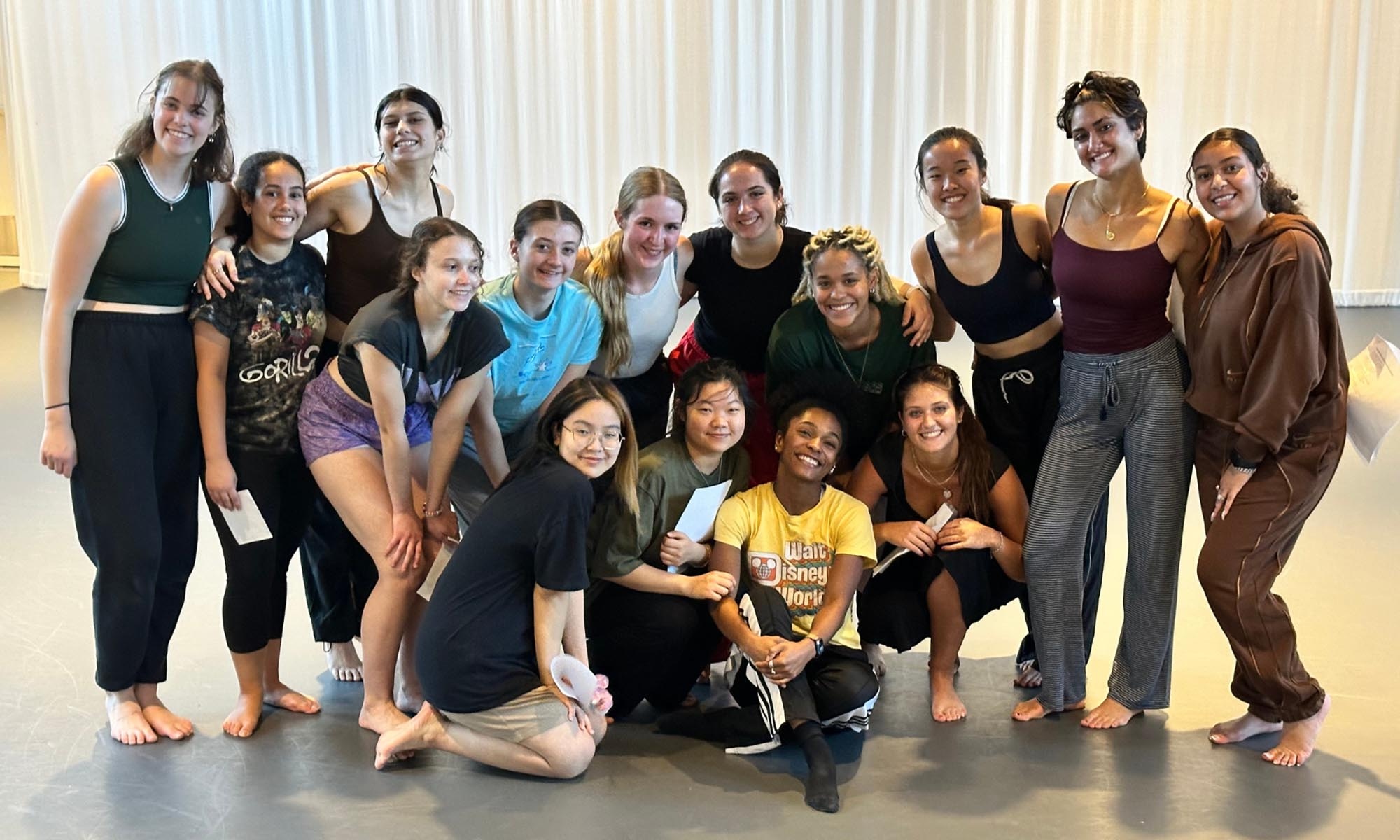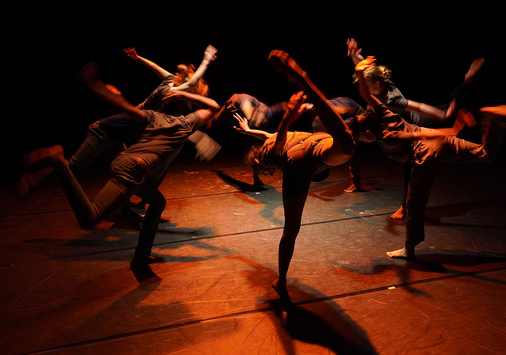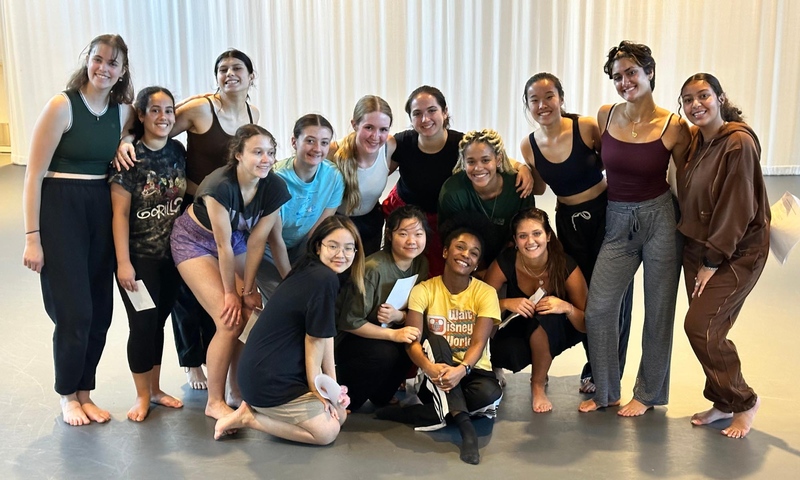
Timeless/Eterna premieres on Nov. 15. The contemporary dance concert includes four pieces that explore historical events, timeless music, and stories.
“It’s about time and the lack thereof,” says Lila Sauer ’27, a dancer in the show and president of Denison Ballet Club.
The performances are choreographed by Denison dance faculty Marion Ramirez, Mollie Wolf, and Isaiah Harris, as well as guest artist Brianna Rhodes. Each choreographer explores a different idea within the theme, such as a piece inspired by classic science fiction and thrillers such as The Twilight Zone and the timeless lessons everyone learns from them. Harris interprets the events of a raid of a Nigerian village in the 1970s and encompasses all aspects of a protest, including music, intense disputes, and long moments waiting for change.
The show’s choreography began building during the first few classes of the semester. Each choreographer had two weeks to collaborate with the dancers. The full performance with all the choreography will come together for the first time during tech week.
“It’s a lot of that creative process of working with us and our bodies trying things,” Sauer says.
Rhodes, a freelance artist from Dayton, Ohio, now living and working in Columbus, will be featured as a guest artist. She helped Denison dancers choreograph a piece based on her poem about the 1921 events in Tulsa. The choreography works backward through the event, turning it from a tragedy into a triumph.
Sauer says that working with Rhodes has been a positive experience. “Everyone in Denison Dance Company has such different dance backgrounds,” Sauer says, “so for her to be able to quickly find the strengths of all the dancers in the room was really fun to see.”
Reverend Timothy Carpenter will also grace the stage with timeless piano music, as well as in collaboration with resident dance musician Matthew Peyton Dixon.
Fall Dance Concert: Timeless/Eterna
7 p.m. Nov. 15 and 16 Martin Hall, Eisner Center
Free and open to the public, but tickets are required. Available Oct. 31.






